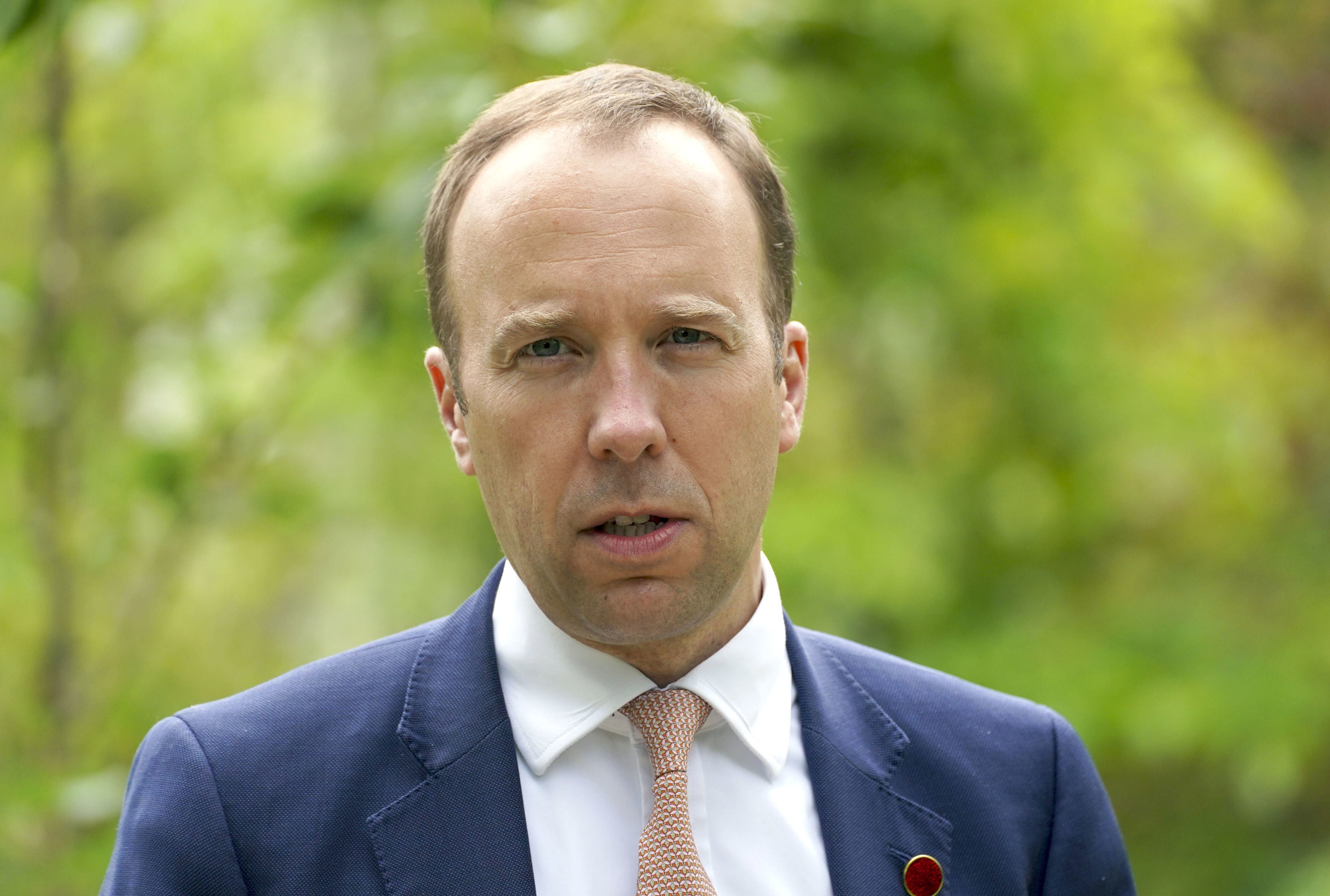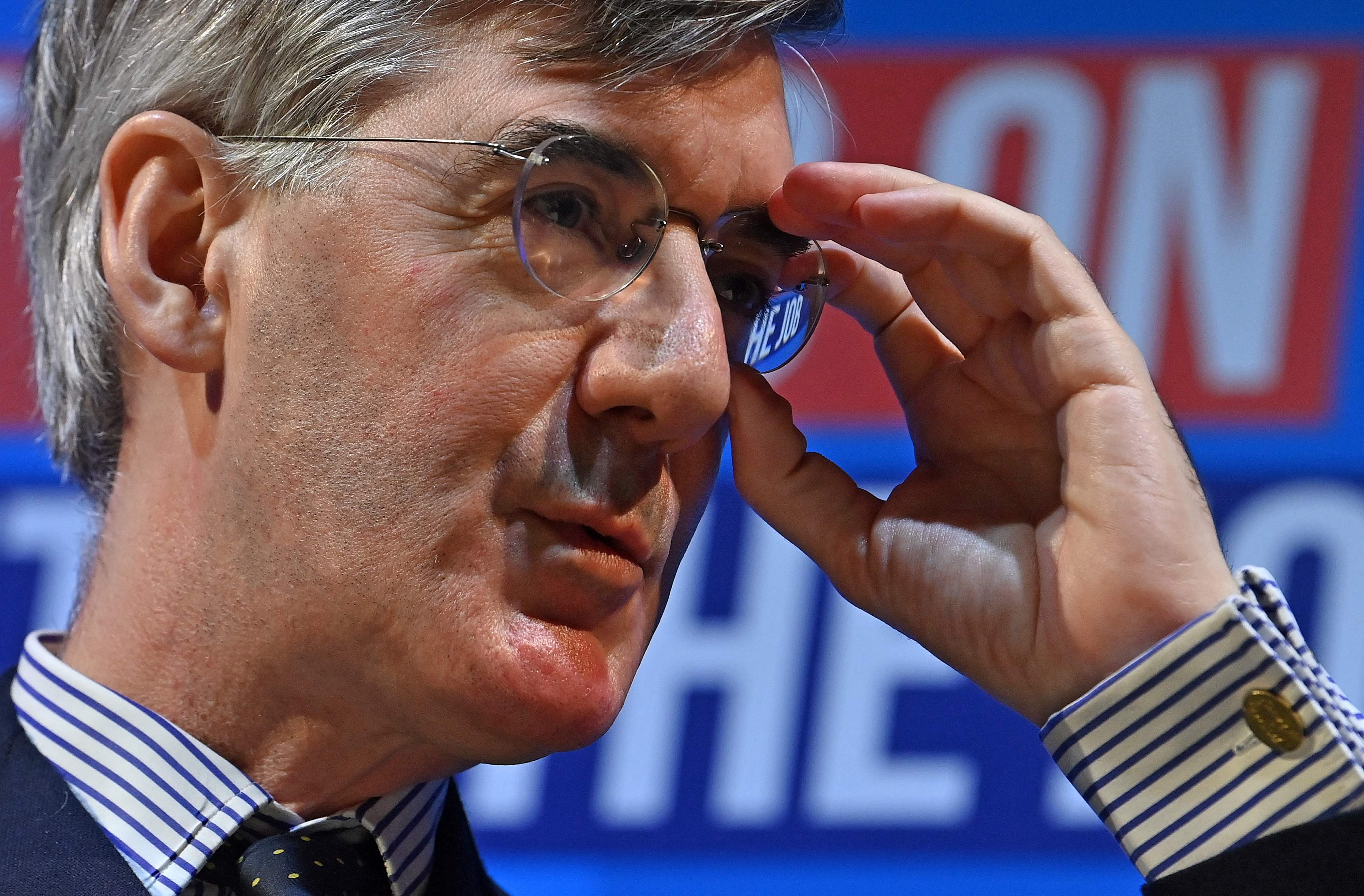
An extraordinary war of words has erupted over events at the centre of government during the Covid pandemic after more than 100,000 of Matt Hancock’s Whatsapp messages were leaked.
As he fought for his political reputation, the former health secretary claimed through a spokesperson that the messages had been “doctored” and “spun to fit an anti-lockdown agenda”.
It was “flat wrong” to say Mr Hancock had rejected advice to test all residents going into English care homes, the spokesperson added.
The messages were leaked by the journalist Isabel Oakeshott and published in The Telegraph after she was handed them by Mr Hancock while working on his Pandemic Diaries memoir. Mr Hancock is said to be considering legal action against The Telegraph. A source close to Mr Hancock said: “She’s broken a legal NDA [non-disclosure agreement]. Her behaviour is outrageous.”
The government was also accused of hiding behind the official inquiry after it refused to answer questions over the delivery of a Covid test to Jacob Rees-Mogg’s home despite a shortage.
Downing Street conceded there was “significant public interest” in claims officials had couriered the test for one of the cabinet minister’s children.
Prime Minister Rishi Sunak is now under pressure to fast track the official inquiry into how Covid was handled, to provide answers to questions raised by the leaked messages, which also suggested:
- English schoolchildren had to wear masks because ministers did not want a row with Nicola Sturgeon
- A health minister said there was no “robust rationale” for including children in the controversial “rule of six” but it remained in place anyway
- Boris Johnson was privately dismissive of his govermment’s own shielding policy
- George Osborne warned Mr Hancock: “No one thinks testing is going well Matt”
- The Telegraph maintains the texts were published in full and is “baffled” by the suggestion messages were doctored
The former Tory health secretary Stephen Dorrell said: “The big question for Rishi Sunak is, do we need to speed the process up? And the answer is, yes we do. The government has it in its power to fast track it, if it means changing the terms of reference.”
He also accused Boris Johnson of making a “political choice” to delay the inquiry so “the conclusion lands on the other side of an election”.
“If we don’t want everything dragged out through messages, item by item, the public inquiry is the proper place for ministers to explain their actions,” he said.

Tory MP Peter Bone also suggested the inquiry should “report earlier”.
Labour leader Sir Keir Starmer asked Mr Sunak to give the inquiry resources to report by the end of the year as he blasted the “ghoulish spectacle” of Tory ministers parading themselves as Covid heroes.
The government insists the inquiry is independent and it has no say on its timeline. However, a probe into former cabinet minister Nadhim Zahawi was completed soon after Tory MPs urged the prime minister to fast track it.
Labour said No 10 was “more than capable of answering questions now” about the Rees-Mogg test.
Mr Sunak’s spokesperson refused to be drawn, saying: “On all these issues clearly there is significant public interest, that's why we have established an independent public inquiry that will look to establish the facts. It’s not for me to look at individual claims put out.”
But Labour said that “to hide behind the inquiry at this stage seems bizarre” adding “the government is more than capable of answering those questions now”.
In September 2020, during a severe backlog in testing, messages suggest an adviser to Mr Hancock helped get a test sent to Mr Rees-Mogg’s address.
The aide messaged Mr Hancock to say the lab had “lost” the original test for one of the then Commons leader’s children, “so we’ve got a courier going to their family home tonight”.
That same month there was a backlog of 185,000 Covid tests waiting to be processed across the UK. The rules in place at the time also meant people had to isolate until they received a negative test.
Only a few days before the test was couriered to Mr Rees-Mogg, Sarah Marsh, director of testing at NHS Test and Trace, had issued her “heartfelt apologies to anyone who cannot get a Covid test at present”.

Mr Rees-Mogg addressed the claims on his show on GB News on Wednesday evening: “What happened was that one of my children needed a test and that put everybody into quarantine, but unfortunately the testing people lost it. And that meant I was quarantined, unable to do my job as a government minister for several days, until it was admitted that this had been lost. At that point it was raised with the Department of Health, and they decided to send a test to a member of my family so the test could be carried out.
“Not something I asked for, so if I received any special treatment, it wasn’t because I had requested it, but actually it allowed a government minister to get back to work with a child that didn’t have Covid in the first place, who wouldn’t have needed a special test had the system actually been working, but I accept it wasn’t working for other people too.”
Liberal Democrat deputy leader Daisy Cooper said the claims were “yet more evidence that it’s one rule for Conservative ministers and another for everyone else”.
Mr Hancock has strenuously denied the claims over care homes. His spokesperson said a report claiming he rejected clinical advice on care home testing was “flat wrong” because he was told it was “not currently possible” to carry out the tests.
He added: “It is outrageous that this distorted account of the pandemic is being pushed with partial leaks, spun to fit an anti-lockdown agenda, which would have cost hundreds of thousands of lives if followed. What the messages do show is a lot of people working hard to save lives.”
Downing Street also declined to open a specific probe into Mr Hancock’s messages, insisting leaks were taken “very seriously” but that it was a matter for the Information Commissioner’s Office (ICO).
It said discussing government policy over WhatsApp was “part and parcel of modern government” but that “substantive decisions” must be communicated to the Cabinet Office.
An ICO spokesperson said: “At this stage we do not see this as a matter for the ICO but there are questions around the conditions on which departing members of government retain and subsequently use official information which need to be considered by organisations such as the Cabinet Office.”
Mr Dorrell said the inquiry was about “learning lessons and it is about taking responsibility. This is about those families who lost people, who are entitled to have some answers. A public inquiry shouldn’t be a witch hunt, but ministers should be held to account for the decisions they made.”
On Mr Hancock, he added: “Matt Hancock’s defence may be right – it seems reasonable to be told by Chris Whitty everyone in care homes needs to have a test, but to have discussions with officials who say, it won’t work because we haven’t got enough tests. That’s life as a minister. There was no perfect solution available.
“But there is a bigger question. He had talked [in May 2020] about a protective ring around care homes. We need to know why he was saying that, when people on the ground were saying that were people discharged from hospitals into care homes without tests.”
A source close to Boris Johnson said the claims about the timing of the inquiry were “completely untrue”.
“Boris Johnson did not determine the precise timing of the Covid inquiry and in any case the matter is not political,” the source said. “There was a substantial government process to establish the inquiry.”







